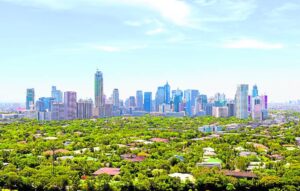MANILA, Philippines —The Aurora Pacific Economic Zone and Freeport Authority (Apeco) said it has temporarily suspended the issuance of investor’s visas pending the completion of new guidelines meant to streamline and improve the application process.
The management of the industrial hub in the province of Aurora said the suspension was part of the internal audit and the review of the new administration under its president and chief executive officer Gil G. Taway IV.
The government-owned and controlled corporation said that it found existing protocols and processes need revisiting to provide this service in a more efficient, effective, and appropriate manner.
READ: Apeco’s story of failures and betrayal
“We do not take lightly the responsibility of issuing visas and it is high time to go back and to understand why Apeco was given such privilege. Apeco will only be issuing visas to serious investors moving forward,” Taway IV said in a statement.
Guidelines overhaul
Under its charter, as created by Republic Act No. 9490 and as amended by Republic Act No. 10083, Apeco is authorized to issue an investor’s visa to foreign nationals who will invest at least $150,000 in the economic zone who meet other entry requirements.
In a follow up question from the Inquirer, a representative from the Apeco said they were already drafting a new guideline to streamline the process for visa application.
However, the representative said they were not sure when the new guidelines would be finished or if they would be able to resume granting investor’s visa this year given that they wanted an overhaul of the entire process.
Reforms at Apeco
The suspension in the Apeco’s issuance of investor’s visa is part of the Taway’s roster of reforms in his first 100 days as he aims to “re-energized not only the agency but also their local community.”
READ: Aurora ecozone revs up pitch as key trade area
The Apeco said that many other projects are underway to improve the service delivery and customer experience for investors and locators inside the nearly 13,000-hectare economic and industrial hub.
Under the new administration, the Apeco has taken a major policy shift of not just pursuing eco-tourism, but also targeting light, medium, and selected heavy industries.
Earlier this month, the Apeco signed an agreement with a local aviation school to establish its second branch in the Philippines inside the special economic zone.
The APG International Aviation Academy (APGIAA) is expected to pour in P100 million in investments in new planes and facilities which will occupy an initial two hectare of land to cater to as many as 1,000 students yearly.


